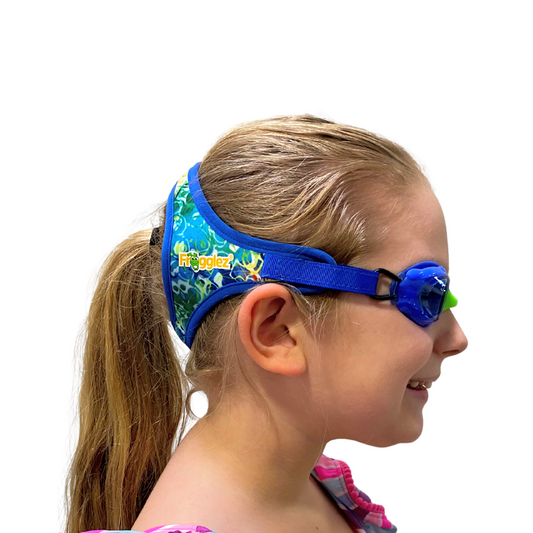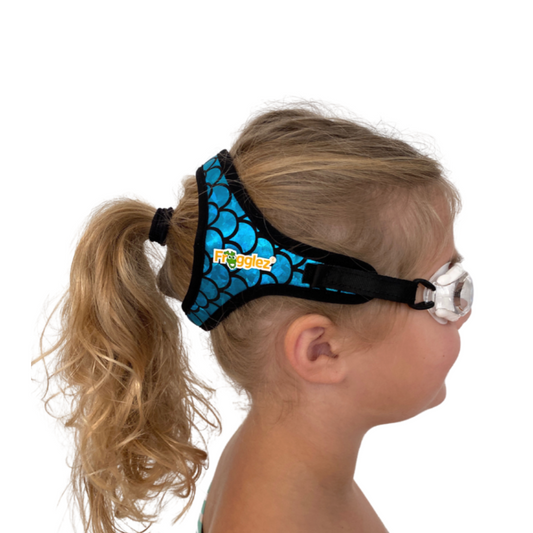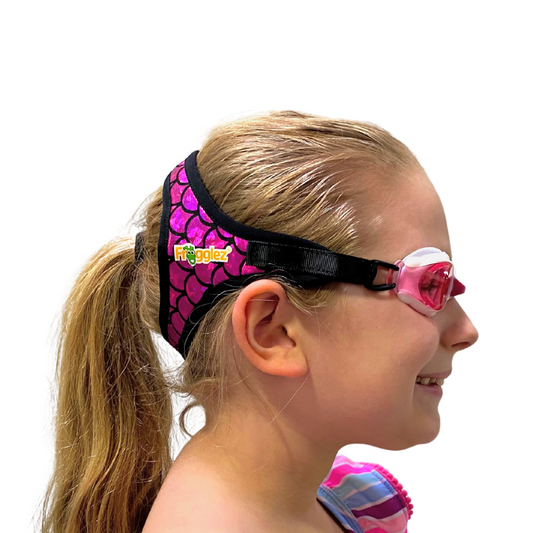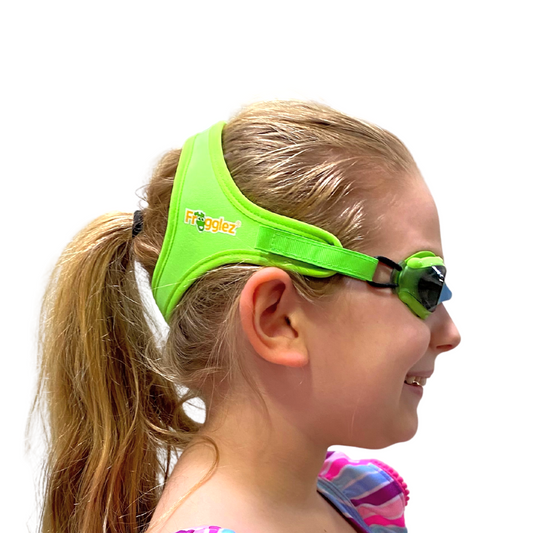If you have dark hair that turns green after splashing in the pool, you’re not imagining it. It’s commonly seen among blondes because the color contrasts on light hair. However, anyone can have issues with the old, damaged ends of long hair turning green in the pool. The complex chemical reaction that causes hair to develop a green film after swimming can suck the fun out of the best summertime activity! Green hair isn’t inevitable, and it’s not permanent. Try these easy ways to prevent your hair from turning green or wash the color out after it happens.
It’s a natural chemical reaction
Many people believe that it’s chlorine that turns hair green. Chlorine plays a part, but the pool chemical powerhouse doesn’t do the job all by itself. Other common causes are algae and heavy metals like copper and magnesium; both appear in swimming pool water. The reaction occurs when one or more substances meet the proteins in your hair.
If your pool water looks a bit green, your hair will too. Low levels of algae can stick to the outer shaft of the hair, giving it a green sheen. However, the most popular algaecides are copper-based, meaning your hair might still turn green. That’s because copper and chlorine bond together to form a film that sticks to the proteins in your strands of hair. The good news is that the green film isn’t permanent, just annoying.
Prevent your hair from turning green after swimming
As with most issues, it’s easier to prevent green hair with a few simple steps than to treat it afterward. Always shampoo and condition your hair after a day poolside. The longer you leave chemicals on your hair, the more damage they can do.
In your backyard pool, you can prevent the onset of green hair with properly balanced chemicals. Well-maintained water inhibits the growth of algae. If the water develops algae anyway, avoid using copper-based algaecides to keep copper levels low.
Unfortunately, you might not be in charge of chemical maintenance. An easy way to limit the amount of chemical-laden water absorbed by your hair is to drench it with clean water before diving in the deep end. That’s right, those signs that say, “shower first” are actually there for your benefit. Don’t get in the pool with dry hair. Instead, soak your hair with clean water before going for a splash, and chemicals won’t hang on as tightly. Even better, apply a leave-in conditioner after soaking but before leaping off the diving board. The conditioner helps seal out chemicals.
Remove green from your hair after swimming
If you’re already feeling a bit green, try one of the following remedies to see what works. One might work better for you than another because of the chemicals involved. The standard solution behind these at-home remedies is using a weak household acid to strip color. Always shampoo and condition your hair thoroughly after using any of these remedies. If you have color-treated hair, consult your hairstylist for advice before attempting these solutions.
Common foods like tomatoes and lemons contain ascorbic acid (aka vitamin C). It’s the same chlorine-neutralizing ingredient you’ll find in Swim Spray. Try rinsing your hair with tomato juice and let it sit for 5-10 minutes, or coat your hair with ketchup and let it sit for 30 minutes. If you don’t have tomato juice, you can cut up a few fresh lemons and soak your hair in lemon juice for 15-20 minutes. No matter which of the options you try, thoroughly wash and condition afterward.
 Another common household remedy uses Acetylsalicylic acid, commonly known as aspirin. Just like you wear swim goggles to protect your eyes while swimming, wear eye protection while applying any of these at-home solutions. Crush about eight tablets, then add warm water to the powder to dissolve into a solution. Dip your hair in the bowl and gently wrap your hair in a towel or shower cap. Let the solution sit for 15-20 minutes before rinsing thoroughly—shampoo and condition as usual afterward.
Another common household remedy uses Acetylsalicylic acid, commonly known as aspirin. Just like you wear swim goggles to protect your eyes while swimming, wear eye protection while applying any of these at-home solutions. Crush about eight tablets, then add warm water to the powder to dissolve into a solution. Dip your hair in the bowl and gently wrap your hair in a towel or shower cap. Let the solution sit for 15-20 minutes before rinsing thoroughly—shampoo and condition as usual afterward.
Try these shampoos that professional swimmers use
If you spend a lot of time in the pool, you don’t have time to sit with a rinse in your hair for 30 minutes every day. Many year-round swimmers, lifeguards, and swim instructors turn to professional shampoos like Burrows Best Tropicals Hair & Body Wash to treat the effects of pool chemicals on their hair. Developed by Olympic swimmer Elvis V. Burrows, it's the only after-swim shampoo for Kids created by an Olympian. It's a yummy smelling combination of pineapple-coconut in a signature scent called Smelvis Freshley.
Pretend you’re in a shampoo commercial
You already know that swimming can be hard on long hair. The chemicals that keep the water clean and safe can make your hair dry and crunchy, and even a bit green. With these easy tips and tricks, you’ll have your healthy and supple locks back in no time. Now, enjoy that pool and have a great summer!








